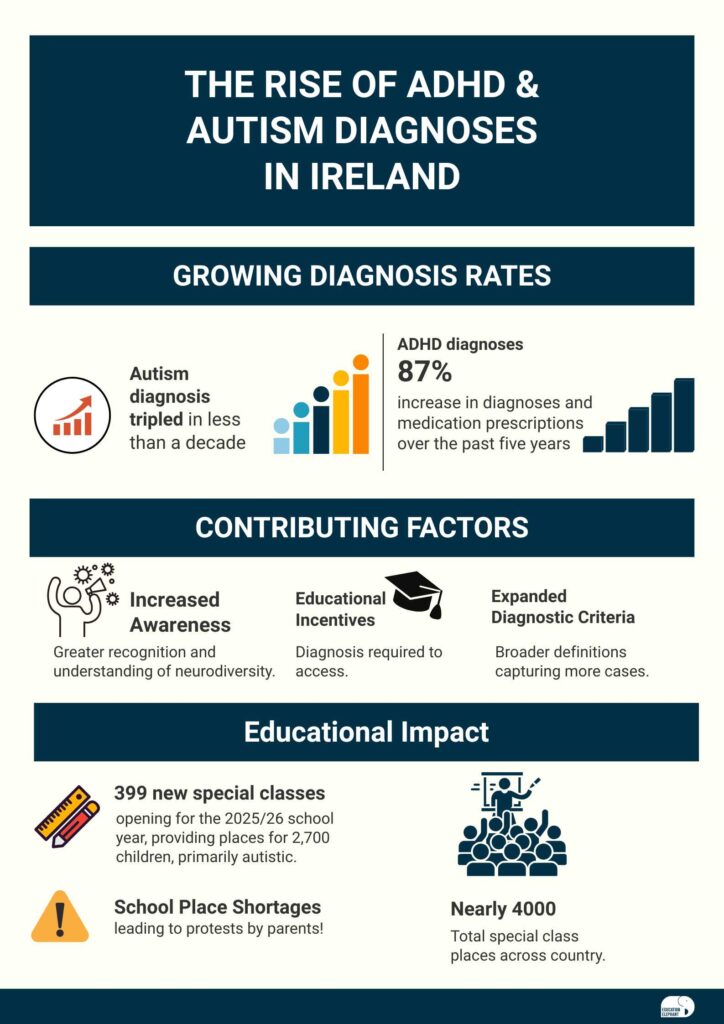In classrooms across Ireland and around the globe, more and more students are receiving autism and ADHD diagnosis. According to a recent RTÉ report, this surge has sparked concern and conversation. But what if the rising numbers aren’t a sign of crisis but of something far more hopeful?
This isn’t a sudden epidemic; it’s a long-overdue shift in how we understand learning, behaviour, and support.
We're Finally Seeing What's Always Been There
For decades, neurodivergent students have been under-identified, under-supported, and often misunderstood. Behaviours once dismissed as “difficult,” “disruptive,” or “not trying hard enough” are now being more accurately recognised as signs of conditions like ADHD and autism. Increased awareness among parents, educators, and clinicians is helping to highlight needs that have long gone unnoticed.
Far from a sudden explosion in cases, the rise in diagnoses reflects society finally catching up with what many educators have instinctively known all along: some students learn, focus, and communicate differently, and that’s not a flaw. It’s a difference.
The Data Behind the Rise
The RTÉ report highlighted that referrals for ADHD and autism assessments have more than doubled in the last five years. Some services are seeing increases of up to 300% in requests for diagnostic assessments.
That’s not a small ripple; it’s a tidal wave! While this rise has stretched resources and left many families waiting far too long for answers, it also signals a system that is beginning to respond to voices that have been quiet for too long.

More girls and young women, who are often underdiagnosed due to different presentations of neurodivergence, are now being identified. Adults, too, are increasingly receiving late diagnoses, prompting reflection on just how many people have lived without the proper support or recognition.
This is not about over diagnosis. It’s about overdue recognition.
What This Means for Educators
In the face of rising diagnoses, educators are increasingly becoming first responders in identifying and supporting neurodivergent learners. It’s not just about noticing who’s struggling anymore; it’s about asking why, digging deeper, and creating safe, inclusive spaces where those struggles are understood rather than judged.
Every day, teachers and support staff are:
- Spotting the child who zones out, not out of defiance, but overload
- Advocating for students who need more time, a different approach, or simply a chance
- Gathering observations that become part of life-changing assessment reports
This responsibility can feel heavy, but it also presents a powerful opportunity.
When educators are provided with the right resources, they don’t just tackle challenges; they discover and harness hidden strengths. They interpret behaviour through the lens of compassion. They lead the change in how learning is defined and supported.
But this level of care takes more than instinct. It requires tools, time, and training. The latest digital assessments like SWIFT help schools understand every student’s abilities and needs much faster without wasting teacher’s valuable time.
The right assessment tools don’t just collect data; they tell a story. The story of how a child thinks, processes, learns, and copes. And that story can lead to the understanding and support that changes everything.
From Labels to Action
A diagnosis isn’t a destination. It’s a starting point. It opens the door to appropriate accommodations, targeted interventions, and, most importantly, validation. “Hey there! Just remember, you’re not broken. You have a unique way of learning, and that’s perfectly okay!”
For schools, this shift means rethinking everything from classroom layouts to lesson design to staff development. It means listening to neurodivergent voices. It means moving from one-size-fits-all to personalised, flexible, and responsive teaching.
We must build systems that assume differences rather than force everyone into the same mould.
Not a Crisis. A Call to Action!
Let’s reframe this conversation. The rise in ADHD and autism diagnoses isn’t a system breaking down. It’s a system waking up. A system beginning to look at every learner as an individual with unique strengths, needs, and ways of experiencing the world.
This moment calls for:
- Empowered educators who know what to look for and how to respond
- Schools that prioritise inclusive training and flexible support
- Assessment tools that simplify complexity and give educators confidence in what they see
Because when we truly see students for who they are, we stop trying to “fix” them. And start building a system that “fits” them. The surge in diagnoses isn’t the problem. The real problem would be if we continued to look away. Let’s not just recognise the need. Let’s rise to it with clarity, compassion, and courage.






